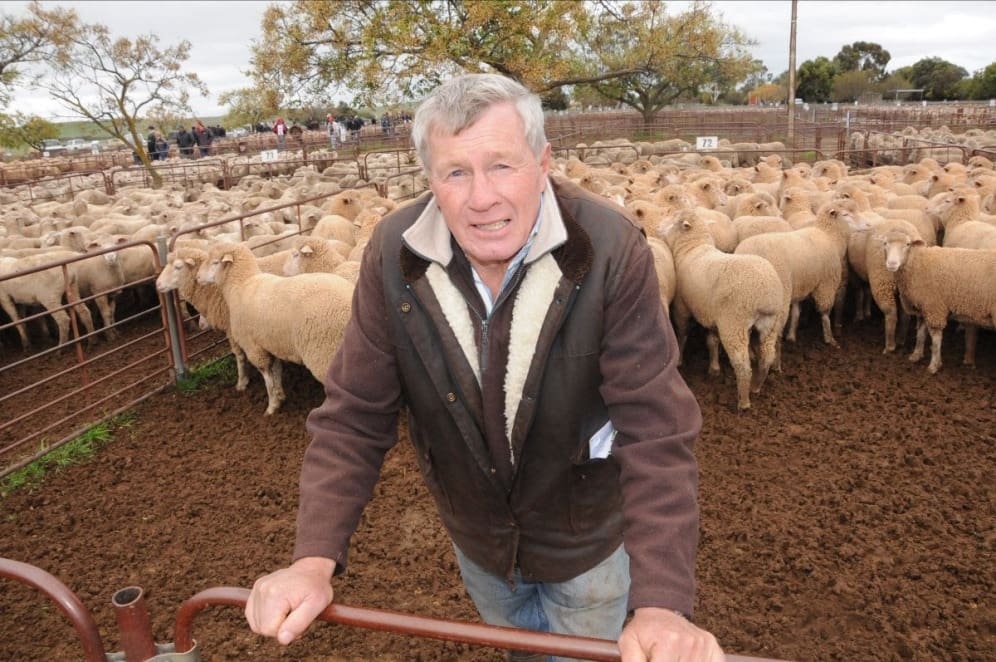
SA woolgrower and chair of the National Wild Dog Management Coordination Committee, Geoff Power, said the NWDAP 2020-30 provided leadership and reassures producers there is ongoing commitment from industry and government to wild dog management.
The National Wild Dog Action Plan has so far returned a cost-benefit ratio of between 6:1 and 16.5:1 for each dollar invested, stakeholders were told during the launch of the latest 2020-30 updated action plan today.
The National Wild Dog Action Plan 2020-30 is Australia’s new blueprint for humane, best practice wild dog management. The new plan officially takes effect from 1 July.
An update of the independently-reviewed NWDAP 2014-19, the new ten-year plan is endorsed by producers, peak farming bodies, the Australian Government, state governments and research and development corporations, and ensures control measures are evidence-based best practice and the most ethical and humane available.
National Farmers Federation president Fiona Simson said the plan has been the spearhead for Australian predator management, providing the inspiration and template for the development of a new Feral Pig Management Plan.
“Its programs also make a significant contribution to biodiversity protection through the control of foxes and feral cats,” Ms Simson said.
“Wild dogs are a major problem for all grazing industries in Australia. Recognising this in 2013, the wool industry initiated the development of the first NWDAP, with the aim of bringing together all livestock peak bodies, researchers and Commonwealth, state and territory governments to a coordinated approach to wild dog management.”
The coordinated and collaborative approach advocated by the Plan underpins projects that are critical to livestock industries such as the Western Australian Esperance extension to the State Barrier Fence Project, the South Australian Dog Fence Rebuild Project and the Queensland Feral Pest Initiative.
Ms Simson said the ongoing commitment to best practice wild dog management, as guided by the NWDAP 2020-30, was vital to the recovery of rural and regional economies, particularly those severely impacted by Covid19, bushfires and drought.
“The wild dog management groups and plans developed in these regions will enable rural and regional Australians to effectively manage wild dogs and rebuild following these traumatic events,” she said.
South Australian wool producer Geoff Power, who chairs the National Wild Dog Management Coordination Committee and the SA Dog Fence Board, said wild dogs cost the Australian economy upwards of $89 million a year in lost production and control costs.
Mr Power also highlighted the hidden impacts on rural communities.
“As sheep, wool and goat enterprises decline, so do jobs and business opportunities which places basic services such as health and education in rural areas at risk,” he said.
“The NWDAP 2020-30 provides leadership and reassures producers there is ongoing commitment from industry and government to wild dog management. We can be confident we have the best strategies and safest tools available for livestock and biodiversity protection.”
Agriculture minister David Littleproud praised the way government and industry stakeholders collaborated on the new Action Plan.
“Wild dogs are terribly destructive pests, costing farmers conservatively upwards of $89 million a year in lost production and control costs,” Minister Littleproud said.
“They can decimate livestock, tearing down sheep and goats at will, and in doing so, can hurt rural and regional economies because of the destruction they wreak and anxiety they cause.
“Having a clear, co-ordinated and borderless national plan to guide farmers and other stakeholders on the best strategies and safest tools for livestock and biodiversity protection is critical for rural and regional communities as they recover from COVID-19, bushfires and drought.
“I applaud the way producers, peak farming bodies, governments and research and development corporations came together to ensure control measures are evidence based and best practice.”
- The new 2020-30 Wild Dog Action Plan is available on the new NWDAP website www.wilddogplan.org.au



HAVE YOUR SAY